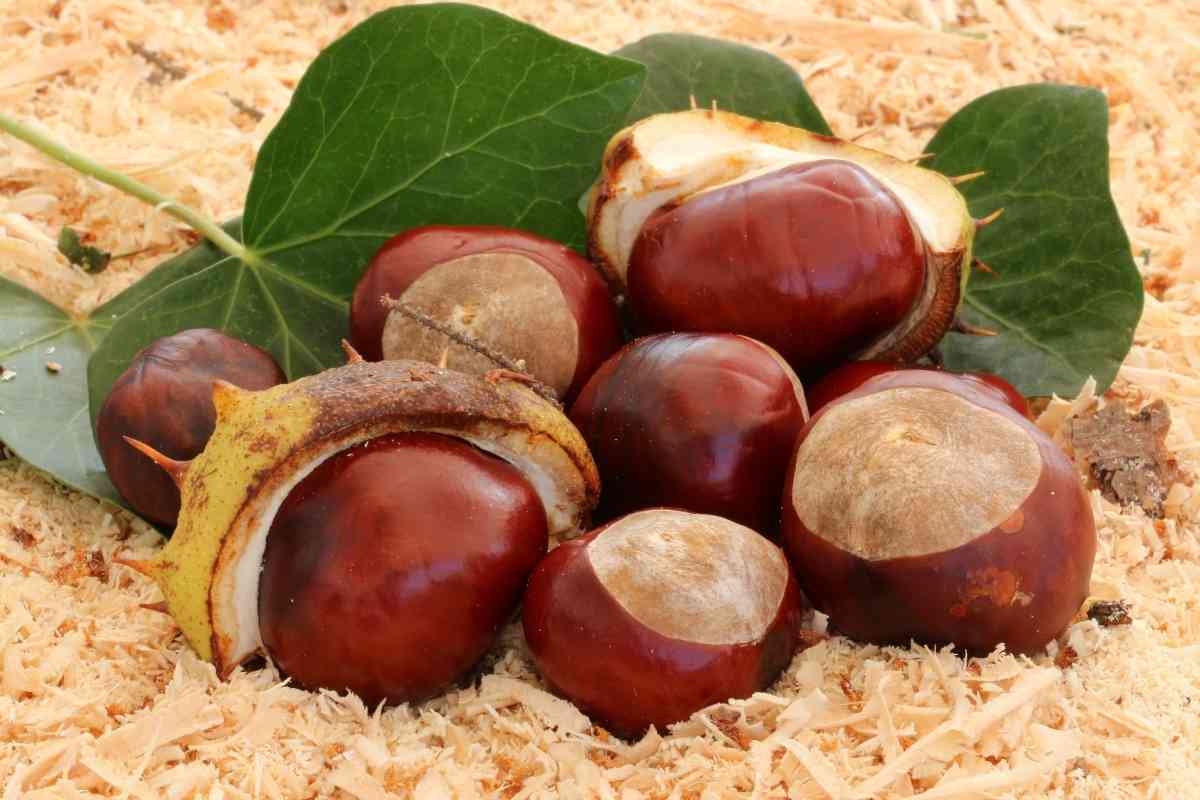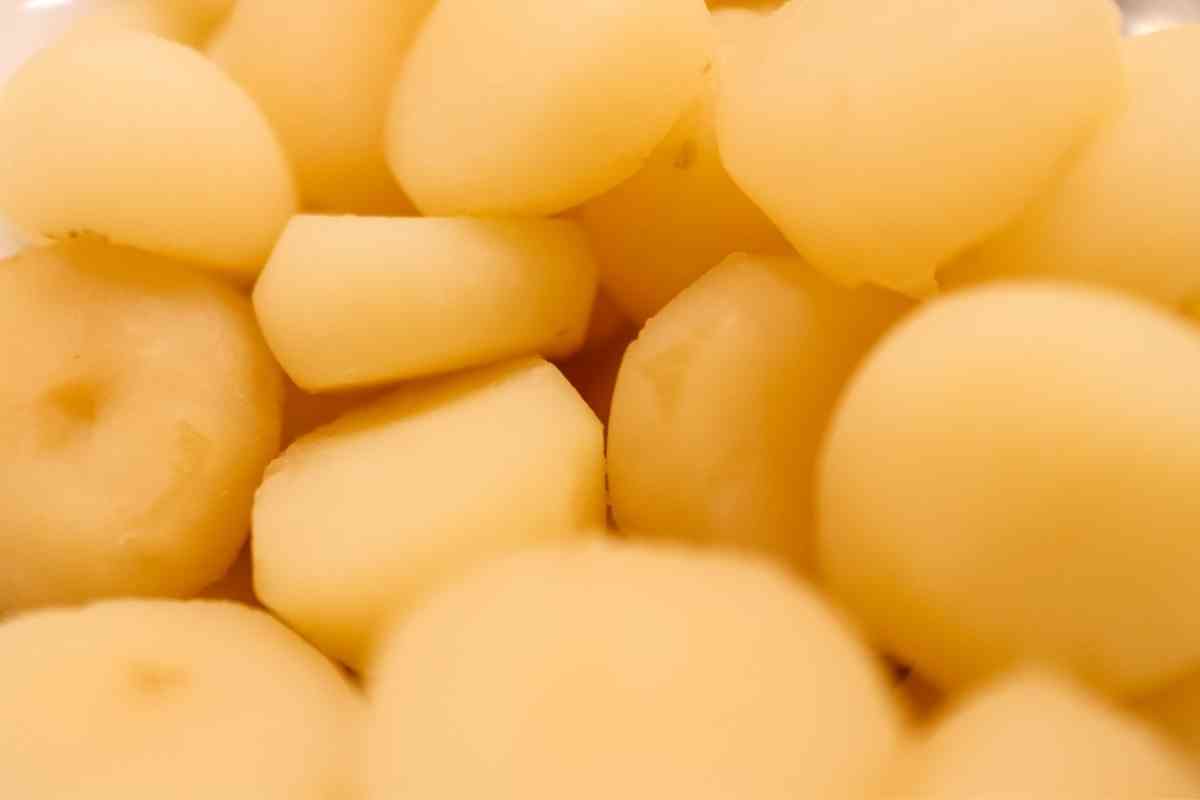Can Dogs Eat Chestnuts? A 9-Point Nutritional Breakdown
Dogs like to munch on the same foods we eat, but not all human foods are suitable for them. So, can dogs eat chestnuts?

Can Dogs Eat Chestnuts?
Specific types of chestnuts are safe for dogs. The American Chestnut, also known as the Castanea dentata, as well as water and sweet chestnuts, can be served to dogs when cooked but in small proportions. However, horse chestnuts or Conkers aren’t recommended for dogs. They contain aesculin, which can be toxic to dogs.
While yes, dogs can eat chestnuts, there are pros and cons to this. Chestnuts generally contain minerals, vitamins, fiber, antioxidants, and fatty acids. However, they can also cause salt poisoning and pancreatitis in dogs.
Like any other human food, when adding chestnuts to your dog’s diet, make sure to consult your vet. Calories are a crucial component of a dog’s diet. It is worth noting that only 10% of calories should come from human food. The remaining 90% of the calories should come from dog food.
As proud dog owners, we’ve learned a lot about what we should and shouldn’t feed our pets. With that in mind, let’s discuss whether dogs can eat chestnuts.
Healthy Nutrients in Chestnuts
Antioxidants
Most people are familiar with the benefits of antioxidants for humans, but did you know that they can also benefit dogs? Antioxidants help protect cells from damage caused by free radicals, which can have several benefits for your dog’s health.
For example, antioxidants can help to reduce inflammation, improve joint health, and boost the immune system. They can also help to protect your dog’s cells from damage caused by toxins and pollution. So, if you’re looking for a way to give your dog a little extra boost in health, consider adding some antioxidant-rich foods to their diet.
Fatty Acids
Fatty acids are essential nutrients that provide several benefits for dogs. For starters, they help to keep skin and fur healthy by providing essential moisture. They also play an important role in regulating immune system function and inflammatory response.
In addition, fatty acids help to support cognitive health and joint function. For these reasons, many dog foods are fortified with fatty acids, and some pet owners even give their dogs supplements.
However, it’s important to talk to your veterinarian before giving your dog any supplements, as too much can lead to negative side effects. When used in moderation, though, fatty acids can be an important part of maintaining your dog’s health.
Fiber
Just like humans, dogs need fiber in their diet for a number of reasons. Fiber helps to keep the digestive system regular and can also help to regulate blood sugar levels. In addition, fiber can promote feelings of fullness and may even help to prevent obesity.
For dogs, fiber is found in various foods, including vegetables, fruits, and whole grains. Fiber-rich foods are an important part of any healthy dog diet, so be sure to talk to your veterinarian about the best way to incorporate them into your pet’s diet.
Vitamin C
Vitamin C is an important nutrient for all dogs, and there are many benefits of vitamin C for dogs. For one, vitamin C helps to boost the immune system, making it easier for dogs to fight off infections.
Additionally, vitamin C helps improve circulation and increase iron absorption, both of which are important for maintaining a healthy coat. Vitamin C is also essential for forming collagen, which helps keep bones and joints healthy. In fact, studies have shown that dogs who receive adequate amounts of vitamin C have a reduced risk of developing arthritis later in life.

Calcium
Calcium helps build strong bones and teeth and plays a role in muscle contraction and nerve function. Calcium levels can drop if a dog doesn’t eat enough calcium-rich foods or if they are losing calcium through vomiting or diarrhea.
This can lead to health problems like osteoporosis, muscle weakness, and seizures. Calcium supplements can help to prevent these problems and keep your dog healthy.
Iron
Iron is an important mineral for dogs. It helps to carry oxygen in the blood, and it also aids in the production of new blood cells. Iron deficiency can lead to anemia, which can cause fatigue and other health problems.
Most dogs get enough iron from their diet, but some may need supplements if they are iron deficient. If you think your dog may be iron deficient, talk to your veterinarian about whether or not iron supplements are right for them.
Zinc
Zinc is an essential mineral for dogs and plays a role in many different bodily functions. For example, zinc helps support the immune system, and it is also necessary for cells’ proper development and function.
In addition, zinc plays a role in wound healing and the production of enzymes. Dogs typically get zinc from their diet, but zinc supplements can be helpful for dogs who are not getting enough of this important mineral.
Zinc supplements are available in many different forms, including tablets, capsules, and powders. ask your veterinarian if zinc supplements could be beneficial for your dog.
Manganese
Manganese is a mineral that’s essential for good health in dogs. It’s involved in many important processes in the body, including energy production, bone formation, and antioxidant activity.
A manganese deficiency can lead to problems like poor growth, joint issues, and reproductive problems. Thankfully, manganese is found in many common foods, so keeping your dog’s levels up is usually not difficult.
However, if your dog has a health condition that affects absorption or manganese metabolism, they may need supplements. Speak to your vet if you’re concerned about your dog’s manganese levels.
Copper
Copper plays a role in various bodily functions. For example, copper helps to form red blood cells, which carry oxygen throughout the body. Copper also helps to maintain healthy connective tissue and bones.
In addition, copper has antimicrobial properties that can help to protect against infection. Supplementing your dog’s diet with copper can have several health benefits. However, it is important to consult with your veterinarian before giving your dog any supplements, as copper can be toxic in large amounts.
Salted Chestnuts Can Cause Salt-Poisoning
Providing your dog with a well-balanced diet is important for their overall health and wellbeing. However, some foods are harmful to dogs, even in small quantities. One example is salt. Salt can cause salt poisoning in dogs, leading to dehydration and electrolyte imbalance.
In severe cases, salt poisoning can be fatal. Chestnuts are often roasted and served with salt, which can pose a serious risk to dogs if ingested. If you suspect that your dog has eaten salted chestnuts, it is important to seek veterinary attention immediately.
Salt poisoning can be treated if it is caught early, but it can quickly become life-threatening if left untreated.
Chestnuts Can Cause Pancreatitis
Pancreatitis is a serious and potentially life-threatening condition affecting dogs of any age, breed, or size. The condition occurs when the pancreas becomes inflamed, and while the exact cause is unknown, there are several potential risk factors.
One of these is the fat content of chestnuts. Dogs who consume a large amount of fat, whether from chestnuts or any other source, are at a higher risk for Pancreatitis. Vomiting, loss of appetite, abdominal pain, and dehydration are all pancreatitis symptoms.
If your dog exhibits any of these signs, it is important to seek veterinary care immediately. Pancreatitis is a serious condition, but with prompt treatment, most dogs make a full recovery.
Chestnuts can be fed to dogs, but it is better to do it in moderation. While there are several health benefits of chestnuts, they can also cause salt poisoning and pancreatitis. It is better to talk with your vet before adding this crunchy fruit to your dog’s diet.